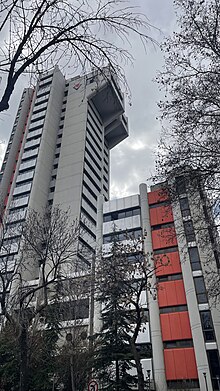Science and technology in Turkey
Science and technology in Turkey is centrally planned by TÜBİTAK and in responsibility of universities and research institutes.
[8] The madrasah education institution, which first originated during the Seljuk period, reached its highest point during the Ottoman reign.
Ali studied medicine in Germany and opened her own practice in Istanbul in 1922, 1 year before the fall of the Ottoman Empire.
In 1795 the scope of the school was broadened to train technical military staff to modernize the Ottoman army to match the European standards.
However, this trend mainly concerns innovation in manufacturing, which is open to competition largely thanks to the Customs Union with the EU in effect since 1996.
This sentiment is shared by Prof. Hasan Mandal, the head of T.BITAK, who notes the insufficiency and lack of focus of public support given to development ‘from prototypes to production’.
[14][13] More importantly, firms in the services and construction sectors, which accounted for 63.5% of GDP in 2018, remain largely shielded from competition.
[13] The low returns that researchers can expect for their efforts are impeding the development of the national innovation system.
[13] There are seven universities in Turkey which are dedicated to engineering, technology and sciences: This article incorporates text from a free content work.


